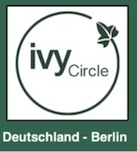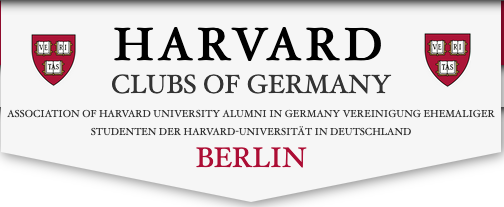by Carl Kruse
The Carl Kruse Blog in conjunction with Ivy Circle in Berlin and the Harvard Club in Berlin would like to invite all to the upcoming Harvard Club speaking presentation “Democracy and the Rise of Authoritarianism” to take place on April 26, 2023 at 6pm CET at the Meistersaal, Köthener Str. 38, 10963 Berlin.

Join Fiona Hill, senior fellow in the Center on the United States and Europe in the Foreign Policy program at Brookings Institute and former official at the U.S. National Security Council specializing in Russian and European affairs, and Daniel Ziblatt, Eaton Professor of Government at Harvard University and director of the Transformations of Democracy research unit at the WZB Berlin Social Science Center in Berlin, as they explore how the erosion of norms, trust, and tolerance threatens contemporary democracy and the ways governments, civil society organizations, universities, the private sector, and citizens can work to push back against authoritarian threats and reinforce democratic governance.
Following the speaking program, enjoy drinks and a festive reception over stimulating conversations.
6:00 p.m. Doors open for registration
6:30 p.m. Conversation with Fiona Hill and Daniel Ziblatt
7:45 p.m. Reception
Event Cost
Harvard Club of Berlin Members and Harvard Recent Graduates (’17–’22): $25
Harvard alumni, Carl Kruse Blog followers, Ivy Circle and guests: $35
I will personally be there and look forward to welcoming all blog friends to the event.
– Carl Kruse

Speaker Biographies
Fiona Hill
Fiona Hill, AM ’91 PhD ’98, is a senior fellow in the Center on the United States and Europe in the Foreign Policy program at Brookings and is a Richard von Weizsacker Fellow at the Robert Bosch Academy in Berlin. In November 2022, Hill was appointed chancellor of Durham University, UK, a high-profile ceremonial and ambassadorial role. She recently served as deputy assistant to the president and senior director for European and Russian affairs on the National Security Council from 2017 to 2019. From 2006 to 2009, she served as national intelligence officer for Russia and Eurasia at The National Intelligence Council. She is author of There Is Nothing for You Here: Finding Opportunity in the 21st Century and co-author of Mr. Putin: Operative in the Kremlin (Brookings Institution Press, 2015).
Prior to joining Brookings, Hill was director of strategic planning at the Eurasia Foundation in Washington, D.C. From 1991 to 1999, she held a number of positions directing technical assistance and research projects at Harvard University’s John F. Kennedy School of Government, including associate director of the Strengthening Democratic Institutions Project, director of the Project on Ethnic Conflict in the former Soviet Union, and coordinator of the Trilateral Study on Japanese–Russian–US Relations.
Hill has researched and published extensively on issues related to Russia, the Caucasus, Central Asia, regional conflicts, energy, and strategic issues. Her book with Brookings Senior Fellow Clifford Gaddy, The Siberian Curse: How Communist Planners Left Russia Out in the Cold, was published by Brookings Institution Press in December 2003, and her monograph, Energy Empire: Oil, Gas and Russia’s Revival, was published by the London Foreign Policy Centre in 2004. The first edition of Mr. Putin: Operative in the Kremlin was published by Brookings Institution Press in December 2013, also with Clifford Gaddy.
Hill holds a master’s in Soviet studies and a doctorate in history from Harvard University where she was a Frank Knox Fellow. She also holds a master’s in Russian and modern history from St. Andrews University in Scotland, and has pursued studies at Moscow’s Maurice Thorez Institute of Foreign Languages. Hill is a member of the Council on Foreign Relations.
Jill Kastner
Jill Kastner, AM ’92, PhD ’99, is a Visiting Fellow in the Department of War Studies at King’s College, London. She has written about Cold War crises in Berlin and the Middle East and contributed to The Nation and Foreign Affairs. She holds a master’s in Soviet studies and a PhD in history from Harvard, where she was a Krupp Foundation Fellow. While pursuing her PhD, she studied at the Institut für Osteuropäische Geschichte in Mainz and lived in both Mainz and Frankfurt. Prior to her academic life, she worked as a TV news producer in Washington.
She is the executive editor of Hope and History: A Memoir of Tumultuous Times, by Ambassador William vanden Heuvel (2019), and is currently working on a new book, A Measure Short of War: The Return of Great Power Subversion, with William C. Wohlforth, due out in 2024.
Daniel Ziblatt
Daniel Ziblatt, AM ’10, is Eaton Professor of Government at Harvard University and is director of the Transformations of Democracy research unit at the WZB Berlin Social Science Center in Berlin, Germany. His three books include How Democracies Die (Crown, 2018), co-authored with Steve Levitsky, a New York Times best-seller and der Spiegel best-seller (Germany) and translated into 22 languages. He is also the author of Conservative Parties and the Birth of Democracy (Cambridge University Press, 2017), an account of Europe’s historical democratization, which won the American Political Science Association’s 2018 Woodrow Wilson Prize for the best book in government and international relations and American Sociological Association’s 2018 Barrington Moore Prize. His first book was an analysis of 19th-century state building, Structuring the State: The Formation of Italy and Germany and the Puzzle of Federalism (Princeton, 2006). In recent years, he has been a fellow or visiting professor at the European University Institute (Florence, Italy), Center for Advanced Study (Stanford), Max Planck Institute (Cologne), University of Munich, and the Ecole Normale Superieure (Paris).
==============
The Carl Kruse Nonprofits Blog Homepage.
Contact: carl AT carlkruse DOT com
The blog’s last post was on Tempelhofer Feld.
Also find Carl Kruse at BOINC distributed computing projects Kruse-Number Fields and Kruse-DENIS.
